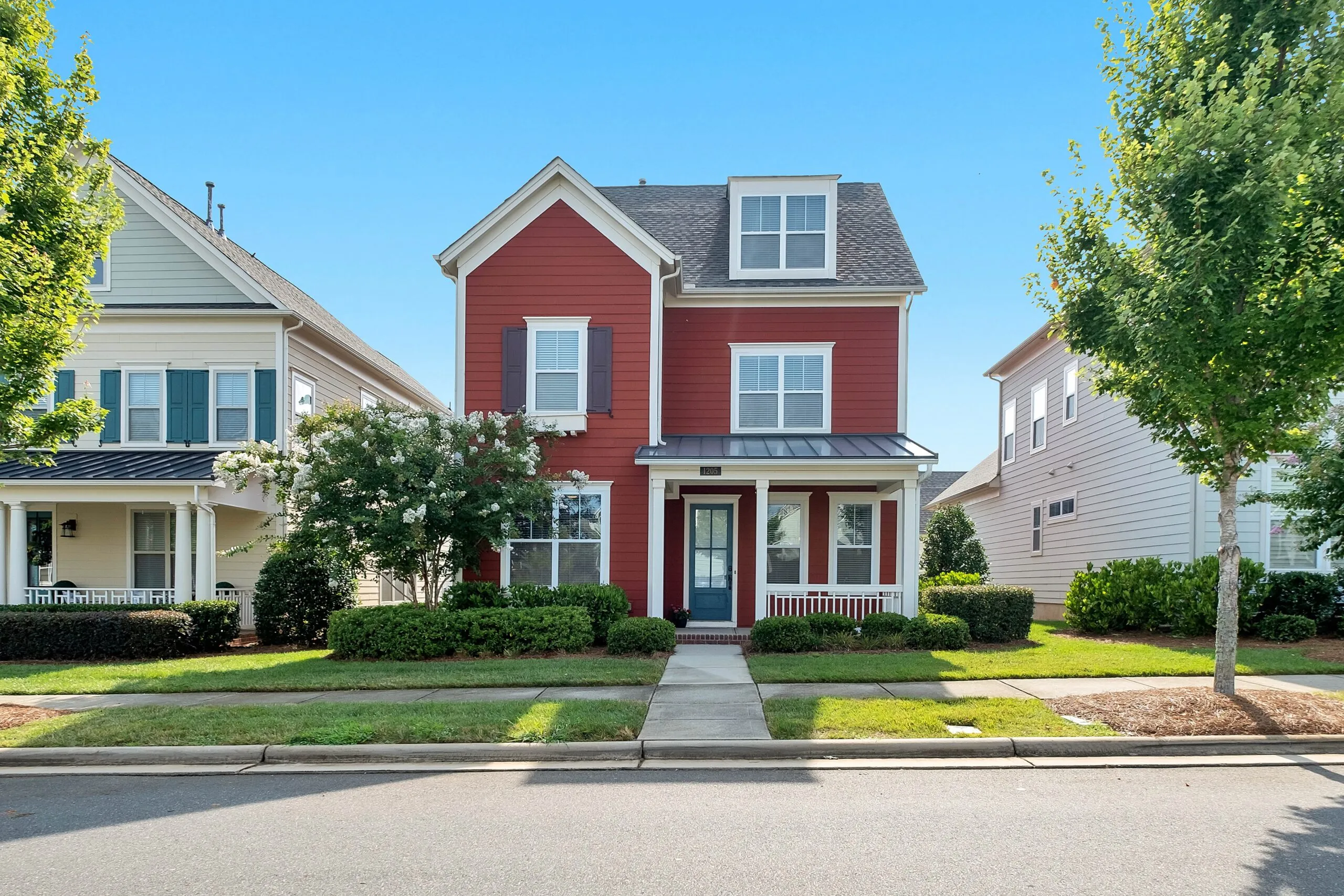Do Hot Tubs Increase Home Value?
Hot tubs and spas are an increasingly popular home accessory, especially in luxury homes.
However, some people add hot tubs to their homes believing they are an investment that will boost the resale value. This is a debatable topic because an asset to some buyers is a deterrent to others.
Do hot tubs increase home value? This guide will provide the answers you need and explain when and why a hot tub can be a good investment.
How Much Value Can a Hot Tub Add to Your Home?
Before considering the added value of a spa or jacuzzi, it’s important to look at the upfront cost and installation fees. The average cost of a hot tub is around $6,000. This is the average price for an acrylic, not inflatable hot tub. If you have an in-ground hot tub or a luxury model, you could pay an additional $6,000 to install it.
Hot tubs range in price from $3,000 on the low end for portable models to more than $25,000 for advanced pools that require expert installation. Larger tubs will cost more, along with hot tubs that come with therapeutic bonus features.
Your first step is to learn how much you expect to pay for your hot tub, the next step is to calculate your return on investment (ROI). Spas depreciate because they wear out over time. Most hot tubs will last between five and 20 years and may require repairs and maintenance during their lifespan. If you were to buy a hot tub today and sell it in a few years, you would likely only get 50% of its value back – and none of the installation cost.
This is why it is challenging to calculate how much value a hot tub provides. Older hot tubs will be less valuable to potential buyers because they might worry about replacing them in the future. The depreciation also means that you will never fully recoup the cost of your investment.
Factors That Influence How a Hot Tub Impacts Home Value
Every home is unique, which means that a hot tub’s value will vary from one property to the next. There may be some homes where a hot tub increases the home’s value and others where it doesn’t have a noticeable impact.
Here are the main factors that affect whether a hot tub will support your resale value.
Type of Hot Tub
Built-in hot tubs tend to contribute more to a property’s value than portable hot tubs. This is because many buyers consider portable models to be personal property. Sellers can always take the hot tubs with them if they aren’t built into the ground, so they contribute to the home’s value just as much as the art on the walls or the seller’s car in the driveway.
In-ground hot tubs have higher values because they are more likely to be left with the home. In this case, they are an asset that comes with the property. Even if the hot tub is used, aging, or requires maintenance, some people might consider the presence of a hot tub a plus when evaluating whether they want to make an offer.
Location of the Home
Demand for spas may change depending on where you live. Some warmer climates where outdoor living is common (like Florida and California) often have high levels of demand for hot tubs and pools. Hot tubs can also be popular in colder climates because they provide a luxury outdoor soaking opportunity after a cold day.
However, if spas aren’t common where you are, prospective buyers might not think to look for this feature. This means they might not add value like you expect.
The popularity of these pools can even vary from one neighborhood to the next. You may notice that several houses in your area have hot tubs and it is a common asset. In this case, not having one could make your home stand out during the sales process.
Integration with Outdoor Space
Consider how the hot tub interacts with the rest of your yard. If the spa is part of a cohesive outdoor living area (paired with a deck, landscaping, and fire pit), it adds more appeal. However, a hot tub that feels out of place or installed in an odd part of the yard could detract from the home’s value.
The type of spa can also determine how well it is integrated. In-ground hot tubs are easier to landscape around, making them feel more natural. A free-standing hot tub can still feel natural if there are stairs around it, chairs and tables for guests, and other design elements that elevate the feel of your backyard.
Buyer Preferences
Some buyers see these spas as a maintenance hassle and an expense rather than an asset. They might not want to take on the responsibility of maintaining the chemical balance and filling the hot tub with water. The added water costs and regular maintenance costs also might not be appealing to some buyers. They could consider the spa a chore rather than a benefit.
However, other buyers will appreciate this feature. They will be excited about buying a home with an existing tub they can use immediately. After spending a long day moving in, they can rest their muscles with a good soak.
Benefits of Adding a Hot Tub to Your Home
Many people find these heated pools to be an attractive feature in the home search. Even if the hot tub doesn’t directly increase your home value, you can reap other benefits from this investment. Here are a few reasons to add a free-standing hot tub or in-ground model to your home.
- Enhanced Lifestyle: these heated pools are great for relaxation, stress relief, and entertainment. Whether you destress with a long soak after work or invite your friends over to enjoy the spa, a hot tub can enhance your lifestyle and make your home more enjoyable.
- Increased Buyer Appeal: A spa can make your home stand out in competitive markets. Buyers choosing between two homes might choose yours because of this investment. Even if the spa doesn’t directly increase your property values, it can help your home sale by driving interest in the property.
- Improved Outdoor Living: hot tubs allow you to create an outdoor oasis that you can enjoy and potentially use to attract buyers. Highlight how your home is made for outdoor living with cozy fires, cookouts, and beautiful nights watching the stars.
Even portable hot tubs can support your lifestyle goals and create opportunities to spend quality time with friends and family. Not every purchase you make for the home has to directly improve your property values.
Drawbacks to Consider
Despite the ample benefits of adding a spa to your home, there are some important drawbacks to keep in mind. If you have yet to buy a hot tub and are considering whether this is a smart investment, evaluate these potential risks to see if they are worth it. Many people find the joys of owning a spa are well worth the costs, but they aren’t right for everyone.
- Maintenance Costs: Understand the long-term costs that come with spa upkeep. These include cleaning costs, water treatment, and the increase in your water bill that comes with filling the tub. As your spa ages, you will also need to factor repair costs into your budget.
- Potential Liabilities: Some buyers may have safety concerns or worry about the insurance implications of owning one of these spas. Young children should avoid hot tubs and follow strict safety guidelines. Also, women who are pregnant should avoid these spas. By showcasing your spa in your listing photos, you can deter buyers who don’t want one of these pools. This can save you time from showings that don’t result in offers.
- Limited ROI: Hot tubs will not significantly increase the home’s sale price because they depreciate over time. Every year your spa ages its value drops. Do not run out and buy a spa just to support your property values.
Furthermore, some spas can actually be detrimental to the perception of the home. If your backyard or deck has small square footage, the jacuzzi could take up more space than your buyers want. It can make your backyard feel cramped. A purchase that you consider an asset to the home could put off prospective buyers.
Should You Install a Hot Tub for Resale Value?
Hot tubs are typically considered personal property and will not necessarily increase your home’s value. While in-ground hot tubs may appeal to some buyers and built-in hot tubs are more likely to stay with the home when sellers move, they won’t necessarily make a house worth more. In fact, some buyers might even be put off by the hot tub if they are worried about maintenance and repair costs.
If you want a hot tub, buy it primarily for your own enjoyment. Relax after work or whenever you need to rest your muscles and mind. Any added value to your home is a nice bonus.
If you are a home seller with an existing hot tub, make sure you present it as an added benefit to buyers. Here are a few tips to win people over with your hot tub:
- Include the hot tub in your professional listing photos. This way buyers aren’t surprised by it during the showing.
- Clean and fill the tub before any showings. Run the jets when people are touring your home.
- Landscape around the area and invest in staging to help buyers picture themselves using it.
- Be clear that the jacuzzi is staying with the house so buyers don’t think they have to negotiate for it.
- Provide any records on the purchase and repairs you have made. This proves that the pool is in good working on and not a liability.
Gathering information like purchase records before you can streamline the sale process. If buyers ask about the age of the hot tub, you can easily provide documentation proving that it is an asset.
Decide Whether a Hot Tub’s Value is Worth the Cost
To learn whether your specific hot tub will increase your home’s value, contact a real estate agent. They can provide local insight into the demand for these pools in your area. A quality agent will be honest about the added value that a hot tub can provide and whether or not there will be any noticeable impact.
Turn to FastExpert to find local real estate agents you can trust. You can read profiles from local agents and learn about their specialties. This is the best source for highly-rated Realtors you can learn about objectively. Try FastExpert today and take the first steps to sell your home.





